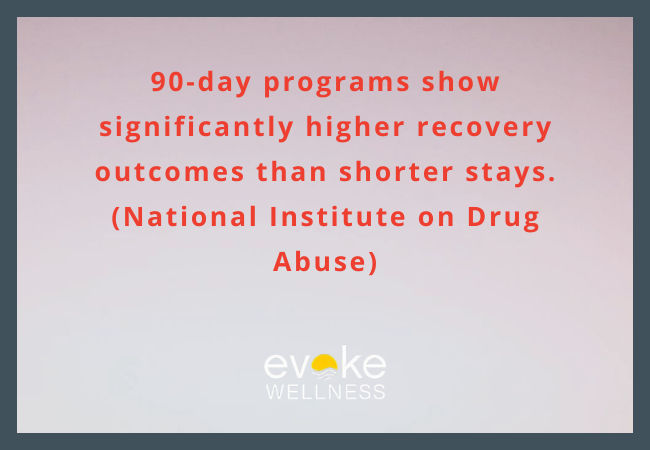Making the decision to enter inpatient rehab is one of the most courageous and life-changing choices a person can make. It’s not just about leaving behind substance use or destructive patterns—it’s about stepping into an environment designed for healing, personal growth, and long-term recovery. But just like any significant journey, the more prepared you are before you begin, the smoother your path forward will be.
Preparing for an inpatient rehab stay involves more than just packing a bag. It’s about tying up loose ends, preparing mentally and emotionally, and making intentional choices to support your treatment. Whether you’re entering voluntarily or following a professional referral, understanding what to expect and how to get ready can make a meaningful difference in your overall experience.
Understanding What Inpatient Rehab Entails
Before jumping into logistics, it’s helpful to understand what inpatient rehab actually looks like. In this setting, clients reside at the treatment facility full-time. This 24/7 environment provides a safe, structured space free from outside triggers and stressors. Rehab programs are individualized and may include medical detox, behavioral therapies, holistic modalities, and mental health support.
Unlike outpatient care, inpatient rehab allows for full immersion in the healing process—giving individuals the time and attention needed to address the root causes of their substance use and rebuild their lives.
Step 1: Finalize Your Decision and Choose a Program That Meets Your Needs
One of the first and most vital steps in preparing for treatment is committing to the decision fully. Once you’ve taken that step, choosing the right facility becomes paramount. Not all programs are created equal, so it’s essential to find one that aligns with your physical, psychological, and emotional needs.
For example, if you need medical support for withdrawal, ensure your chosen facility offers an Alcohol Detox Program in Massachusetts or one tailored to your specific substance. Also consider whether you need trauma-informed care, family involvement, or services for co-occurring disorders. Finding the right match increases your chance of long-term success.
Step 2: Handle Employment, Legal, and Financial Responsibilities
Inpatient rehab often requires a stay of several weeks or more. During that time, you’ll want to ensure that your responsibilities are taken care of so you can focus entirely on recovery.
Employment:
Inform your employer of your leave. Under the Family and Medical Leave Act (FMLA), eligible employees can take up to 12 weeks of medical leave per year—including for substance use treatment—without losing their job. Be honest but discreet if necessary, and remember: your health comes first.
Finances:
Set up automatic payments for essential bills, or ask a trusted family member to manage your finances while you’re away. The fewer distractions you have about money during treatment, the better.
Legal Issues:
If you have court dates or legal obligations, communicate with your attorney or case manager. Rehab centers often provide documentation verifying your stay, which may support legal cases or allow for rescheduling of proceedings.
Step 3: Communicate With Loved Ones
Although inpatient rehab often limits outside contact to preserve focus on recovery, having supportive conversations with loved ones beforehand is incredibly important.
Let close friends or family know about your decision, and if you feel comfortable, explain your reasons for entering treatment. This can relieve emotional pressure and build a support system you’ll lean on after you complete your program. Some may even be involved in family therapy sessions later on.
Additionally, assign someone you trust to help manage your home, pets, or personal responsibilities during your stay.
Step 4: Pack Smart and Bring What You’ll Actually Need
What you bring to rehab matters more than you might think. Pack light, but intentionally. Most treatment centers offer guidelines on what is permitted, but here’s a general list:
-
Comfortable, season-appropriate clothing (about a week’s worth)
-
Personal hygiene products (non-alcohol-based)
-
Required prescription medications (in original bottles)
-
Government-issued ID and insurance card
-
A journal or recovery-related reading materials
Avoid bringing anything that could disrupt the recovery process—this includes weapons, alcohol, drugs, and anything suggestive of substance use.
Step 5: Prepare Emotionally and Mentally
Arguably, the most important part of preparation is internal. Many people enter treatment feeling anxious, ashamed, or unsure about the road ahead. These feelings are natural. But the more you can process and accept your current state, the better positioned you’ll be to embrace treatment fully.
Start thinking about your personal goals. What are you hoping to gain from this experience? What patterns or thoughts have held you back? Reflection before rehab sets the stage for breakthroughs during your stay.
Also, understand that inpatient rehab will challenge you—it will push you to confront uncomfortable truths and stretch your comfort zone. But it will also provide hope, tools, and clarity that can change the course of your life.
Step 6: Learn About the Therapies and Structure of Treatment
Familiarizing yourself with what daily life in inpatient rehab looks like can lessen your anxiety about the unknown. Most programs, like those at a Residential Treatment Program in Massachusetts, offer a structured daily schedule including:
-
Morning meditation or mindfulness sessions
-
Group therapy and psychoeducation
-
One-on-one therapy
-
Recreational therapy and wellness activities
-
Evening reflection or journaling time
This consistent structure helps regulate emotions, improve habits, and instill discipline—while still allowing room for self-discovery and rest.
Additionally, knowing that you’ll have access to a Mental Health Treatment Center in Massachusetts may be reassuring if you’re dealing with depression, anxiety, trauma, or other underlying conditions. Rehab isn’t just about abstaining from substances—it’s about learning how to cope in healthier, more constructive ways.
Step 7: Set Realistic Expectations
Recovery is a marathon, not a sprint. It’s important to enter treatment with realistic expectations. Inpatient rehab will not “fix” everything overnight. Instead, it will equip you with a foundation to continue building upon once you leave.
Your stay is just the beginning. The work continues through aftercare planning, outpatient therapy, support groups, and lifestyle changes. Keeping this perspective helps prevent disappointment and empowers you to stay engaged in your healing.
For those concerned about substance-specific support, it’s worth noting that facilities often include access to both an Alcohol Detox Program in Massachusetts and a Drug Rehab Program in Massachusetts, ensuring safety and tailored treatment during detox and beyond.
Why Preparation Matters
Inpatient rehab—also known as residential treatment—offers 24/7 care, structure, and support in a substance-free, therapeutic environment. Most individuals stay for 30 to 90 days, depending on their needs.
Preparing for your stay ahead of time:
-
Eases stress and anxiety
-
Helps you stay focused on recovery
-
Minimizes distractions from the outside world
-
Ensures loved ones and responsibilities are cared for in your absence
-
Sets realistic expectations for the treatment process
Why Choose Evoke Wellness at Cohasset?
Evoke Wellness at Cohasset provides a compassionate, clinically driven approach to recovery. Our programs are evidence-based and designed to address the full spectrum of addiction and co-occurring mental health conditions. With the support of our Intensive Inpatient Program in Massachusetts, you’ll have the stability, structure, and professional care you need to build a life rooted in lasting recovery.
Our team of licensed professionals is committed to helping you feel safe, supported, and empowered as you navigate this life-changing journey.
Conclusion
Preparing for inpatient rehab is more than just checking items off a list—it’s about making a conscious shift in your life toward health, healing, and freedom. The days and weeks before treatment may feel overwhelming, but with a bit of planning, courage, and support, you’ll arrive ready to get the most out of your experience.
Whether you’re seeking help for yourself or supporting a loved one, the team at Evoke Wellness at Cohasset is here to guide the way. As a trusted Addiction Treatment Center in Massachusetts, we offer comprehensive, individualized care that meets you where you are—and helps you get where you want to be.
To learn more or to take the first step, call us today at 866.931.6429.
Frequently Asked Questions (FAQs)
How long should I prepare in advance before entering inpatient rehab?
It’s recommended to begin preparations at least one to two weeks ahead of your scheduled admission. This gives you enough time to manage logistics like work, finances, and personal obligations while also allowing you to emotionally and mentally prepare.
What should I bring to inpatient rehab?
You should bring comfortable clothing, toiletries without alcohol content, prescription medications in original bottles, ID and insurance cards, and any approved personal items such as books or a journal. Each facility may have specific rules, so always check in advance.
Can I talk to my family while in inpatient rehab?
Most inpatient rehab programs allow some form of communication with family, but this is often scheduled and limited, especially early in treatment. This helps clients focus fully on their recovery. Family involvement may increase later through therapy or support sessions.
Will my job be protected while I attend rehab?
In many cases, yes. The Family and Medical Leave Act (FMLA) allows eligible employees to take up to 12 weeks of medical leave per year for treatment, including inpatient rehab, without losing their job. Check with your HR department for your specific eligibility.
What happens after inpatient rehab is over?
After completing inpatient rehab, most people transition into a step-down level of care, such as outpatient therapy or sober living. Aftercare planning is typically provided before discharge to support ongoing recovery and prevent relapse.





